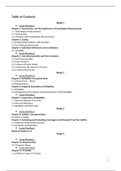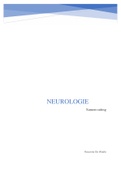Samenvatting
Summary 2.5 Psychometrics
- Vak
- Instelling
- Boek
These are all the notes for course 2.5 Psychometrics, taught in Erasmus University. It contains all the chapters from the textbook with highlights for the important terms and some detailed explanations. The notes are made in such a way that you can skip reading on the textbook entirely and save you...
[Meer zien]





